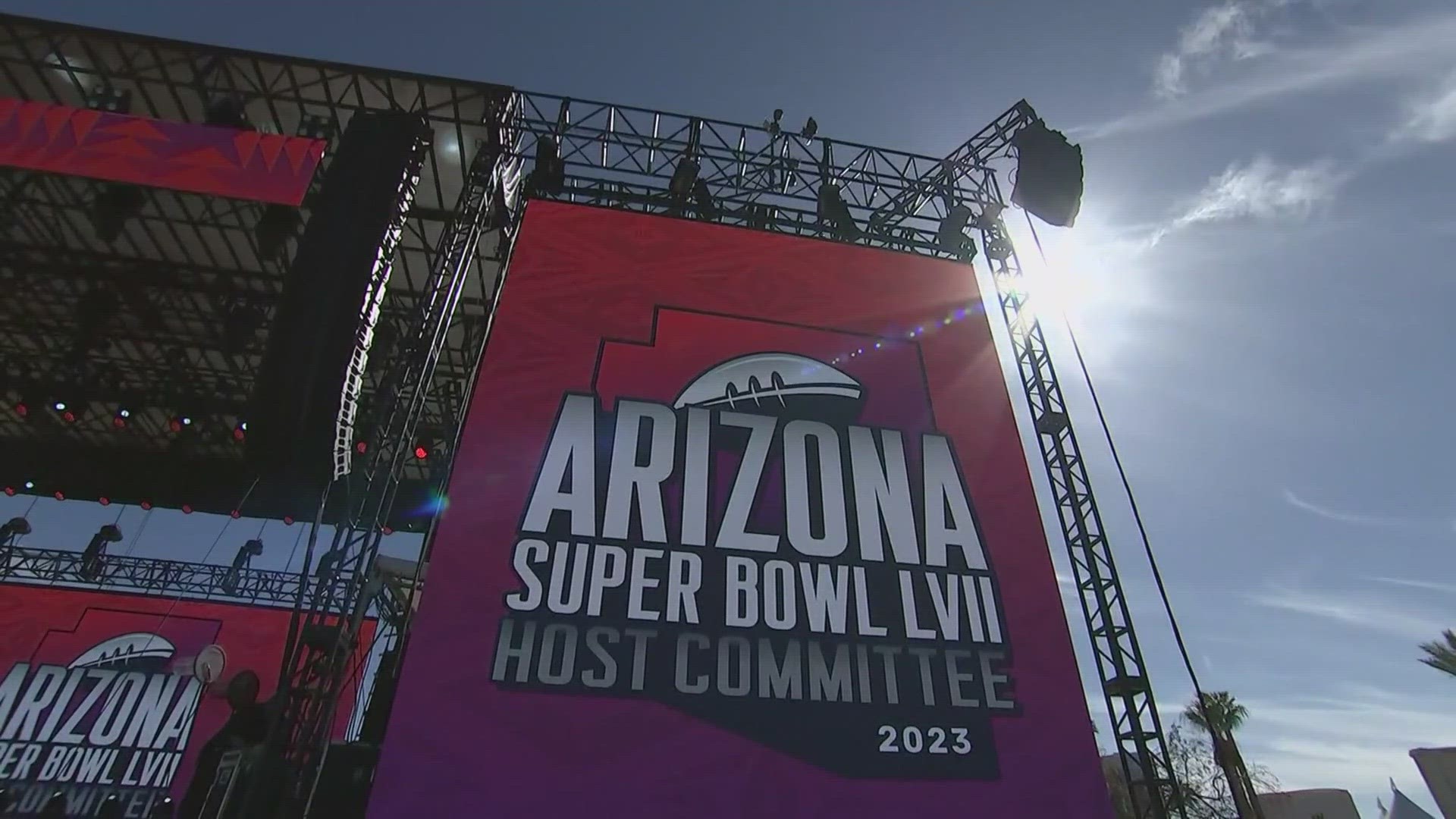PHOENIX — March Madness is making its way to the Valley in just five weeks.
So, will the NCAA men's basketball Final Four deliver an economic boost?
Here's the thing about the Final Four, Super Bowl and other major events: There are countless studies of their "economic impact." Arizona Cardinals owner Michael Bidwill proclaimed the 2023 Super Bowl in Glendale had a statewide economic impact of $1.3 billion.
That number comes from a study by ASU's Seidman Research Institute at the W.P. Carey School of Business found the economic impact was $1.3 billion with a contribution of $726.1 million to state's gross domestic product. But the institute's staff director, who worked on the study, said the $1.3 billion was "not a good number" and to focus on the $726.1 million.
Professor Dave Berri of Southern Utah University is a sports economist who has written a book about the broad economic impact of the Super Bowl.
Arizona's $1.3 billion impact, he said, "isn't possible. That's not how that works."
"Even if the 1 billion were true - and it's not - the economies are in the hundreds of billions of dollars so it wouldn't show up in the overall data anyways," Berri said.
"It's too small of a business to make any kind of impact like that on the economy."
Like the Final Four, the Super Bowl is played at Glendale's State Farm Stadium. But many of the events, aside from the championship game, are held in Phoenix.
The state's largest city barely broke even as a Super Bowl host, according to tax-collection data provided by the City of Phoenix.
According to a January report to the Phoenix City Council, Phoenix's sales tax collections grew $6.3 million during the Super Bowl months of January and February 2023, versus the same period the year before.
The city cautions that it's impossible to break out tax revenue specifically attributed to a game played in early February.
To support the Super Bowl, the city budgeted $4 million for new expenses, largely overtime for first responders.
That means the net Super Bowl sales tax gain for the city was $2.3 million. That's a hiccup over a year - roughly half a day's worth of tax collections.
Berri, the critic of economic impact studies, has no problem with that.
"The problem is when you make up a story and say 'I'm doing this because it's going to make people who live here richer than they were before,'" Berri said. "That's not really going to happen. And that shouldn't be how you justify it.
"You do them because this will make people who live here happier than they would be otherwise and ... that's a perfectly legitimate excuse to do something."
Up to Speed
Catch up on the latest news and stories on the 12News YouTube channel. Subscribe today.

